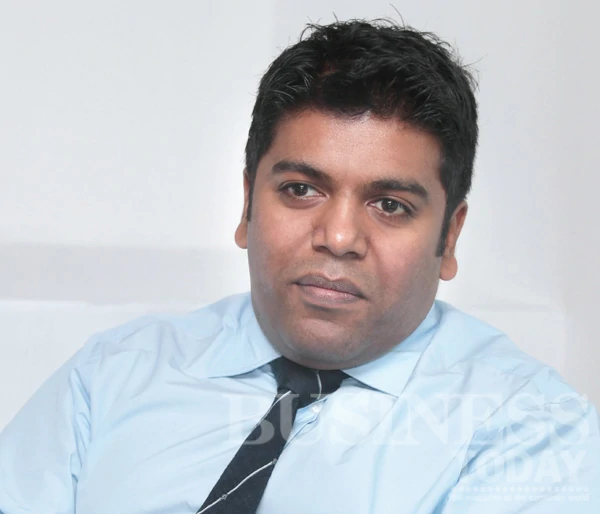
Commenced in 2008 as an organisation to bring the scattered companies spread throughout the IT/BPO Industry of Sri Lanka under one umbrella, SLASSCOM – Sri Lanka Association of Software and Service Companies – is now currently in its fifth year of operation and is steadily steering the country towards a globally recognised IT platform. Madu Ratnayake, Chairman and Jeevan Gnanam, Director of the Association related the growth of the industry up until now while presenting their views on how to fast track this growth to make the IT/BPO Industry, the Number One industry in Sri Lanka.
By Krishani Peiris | Photography Indika De Silva
“The main objective of SLASSCOM is to catalyse the growth of the IT Industry,” said Madu Ratnayake commenting on the establishment of the association. “We really felt the need of a strong unified voice to represent the country, locally as well as globally. Now through SLASSCOM, we have a very clear voice about what the industry requires and where we can go from here.” As such the Association has initiated a manifold of activities to spur on the IT Industry of the country to reach new heights in a globally competitive arena. Activities such as branding, positioning the country, building capacity, steering the necessary policies along with the Government, supporting research and aiding startups to name a few has already added the much needed fuel to a field that is fast becoming a core export revenue earner for Sri Lanka.
Looking back at the year 2009, the export revenue earned from the IT/BPO Industry accounted for USD 210 million. However, as of now that amount has grown to USD 600 million, showcasing a growth of nearly 200 percent while the number of jobs generated has grown from about 34,000 to 67,000 with more expansion set to occur in the coming years. “Our goal is to achieve a billion dollars worth of export revenue by 2016,” said Ratnayake. “However, in the last five years we have achieved a tremendous growth. Our startup eco system has started to build up more with new companies coming in and setting up their operations in the country. Therefore, we have been able to achieve a good progress.”
This steady progress of the industry could be witnessed clearly in the global rankings such as being ranked 21st in AT Kearney’s – a global management consulting firm – Global Service Location Index, 2011. While gaining recognition thus, SLASSCOM has been strategically focusing on certain countries more than others to market
Sri Lanka’s attributes as an ideal IT/BPO destination. Revealing more on this strategy, Jeevan Gnanam said,
”the countries that we are focusing on currently are Australia, UK, Japan, India and a few Nordic and African countries. This is because we see a natural growth and feel that we have a strong position in these destinations. As the situation could vary from country to country, the strategy is to go into these countries and assess each one. Therefore, we have people assigned so that we can go and build relationships from scratch.”
However, their attention is not limited to overseas markets as
SLASSCOM is working relentlessly to create and increase awareness regarding the role that the IT/BPO industry plays in the country’s economy as it is the fifth largest export revenue earner of the country. Conducting hackthones, an event where people involved in software development collaborate on projects, working with investors to initiate startups and creating different forums such as entrepreneurial or market forums to enforce the
Associations vision of catapulting the IT/BPO industry to the forefront, SLASSCOM continuously work towards achieving the billion dollar mark by 2016.
“Last year we spent 100 million rupees on nine startups,” affirmed Gnanam. “This year that number and amount will probably increase as we are trying to create a startup eco system that differentiates Sri Lanka from other destinations.” Adding to these sentiments Ratnayake further said, “We also continue to engage the
Government and that’s a big part of SLASSCOM’s focus.”
The policies set forth by the
Government include tax incentives such as tax holidays, PAYEE taxes and many others to attract investors as one IT firm or employer setting up a business in a country has the tendency to expand to three or four more.
”The multiplier effect is huge,” affirmed Ratnayake. “If you think about Sri Lanka being a smart country, you need to create smart jobs and having a great incentive scheme is not enough. We really need a massive red carpet programme to attract some of the countries or companies.”
“People Involved Are Willing To Give Up Their Time To Ensure The Greater Good Of The Country And The Association Works On An Ethos Of Understanding, Collaboration And Mutual Respect.”
There are several challenges faced by the IT/BPO Industry of Sri Lanka which include the obscurity of the country as an IT/BPO destination and the talent shortage where demand is much greater than the supply. To combat these challenges, SLASSCOM has continued to create awareness especially about the job opportunities available through the IT sector. The Association has commenced a programme by the name of Future Careers where according to Ratnayake they are attempting to educate school children regarding the options available in the field. “If IT is going to be the number one industry in the country we want the top people in the country to consider it as an option as this is where they can make an impact.”
IT plays a major role in all industries be it tourism, banking or any other as technology helps to enhance efficiency and productivity of a workplace. To that end SLASSCOM is working on several new projects attempting to bring together the industries and the technology companies to move towards an efficient, innovative and productive platform. Comprised of more than 160 companies, SLASSCOM is a volunteer organisation and Gnanam asserts that, “people involved are willing to give up their time to ensure the greater good of the country and the Association works on an ethos of understanding, collaboration and mutual respect.”
SLASSCOM is concentrating more on engaging the private sector of Sri Lanka as they perceive the country having a huge opportunity being a great strategic fit for mid market companies in Australia and some other countries. However, according to both Ratnayake and Gnanam the lack of proper funding has made it difficult to get the required focus investment to the Sri Lankan market. “We won’t see real growth unless we make that investment now. It has to come in the form of a collaborative force from the government and industries,” emphasised Ratnayake.
“There’s a lot of other countries such as Vietnam and Cambodia coming in and they are all fighting for the same piece of pie that Sri Lanka is targeting. So I think the government needs to understand and really support the industry,” observed Gnanam. On a concluding note Ratnayake further added, “we want Sri Lanka to be known for technology and our vision is to achieve the number one position.”






